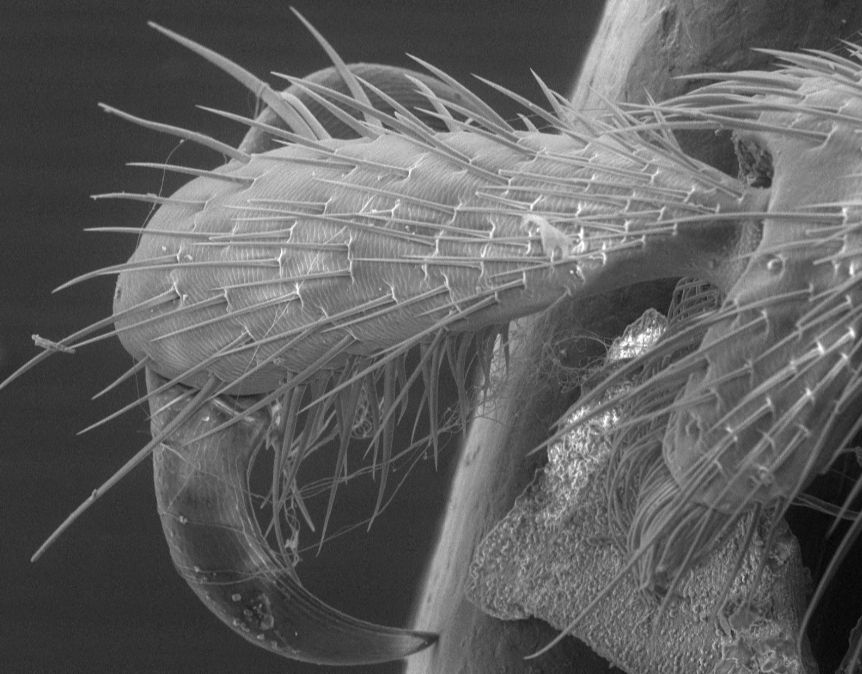Protecting the Planet's Pollinators
- Himanshu Sadulwad
- Feb 22, 2024
- 3 min read
Author: Elianna Gadsby
Editor: Afreen Hossain
Why are bees so important?
As we know bees are crucial in today's society. In fact, pollinators such as bees are responsible for 75% of pollination worldwide, as well as this, 1 in 3 mouthfuls of our food is dependent on pollinators such as bees. Researchers have also discovered that there is a direct correlation between pollination and the nutritional value of food. However, their numbers are depleting due to various diseases threatening large parts of our food supply, an example of one of these diseases is American Foulbrood (AFB).
What is American Foulbrood disease?
AFB is caused by bacterial spores of the Paenibacillus. It is one of the most devastating bee diseases. Young honey bees ingest the spores in their food, and in 1-2 days the spores take root in their gut sprouting out rod-like structures. These rods rapidly multiply before invading the blood and body tissues killing the larvae from the inside out. Due to its highly infectious nature, previously if a colony was to become infected it had to be burnt or buried deeply.
What is the solution?
Fortunately, the world’s first vaccine to combat AFB was approved for US usage on the 4th of January 2023. The mechanism of the vaccine is very interesting. The dead Paenibacillus bacteria is ingested orally in the Queen’s royal jelly before she is introduced into the hive. The vaccine contents are then transferred to the bee’s fat body for storage. The vitellogenin (which are yolk proteins) binds to pieces of the vaccine and delivers these specific immune elicitors to the Queen bee’s eggs in the ovaries. The developing larvae are now vaccinated and are more immune to the infection as they hatch. However, the exact mechanism of how the immune elicitors can enter the insect eggs is still unknown. Whilst this vaccine is not a cure, it has decreased the risk of AFB by 30-50%.
Why do I find the vaccine so interesting?
I personally find this vaccine fascinating as it was previously thought that insects do not possess any kind of long-lasting immunity, in the last decade scientists discovered features in the bee that could suggest a primitive immune system in the Queen bee. As well as this new research has shown that insects can genetically pass information from one generation to the next through a mechanism called Transgenerational Immune Priming. As bees do not produce traditional antibodies it was thought that a vaccine was not possible. Thanks to these recent discoveries, a vaccine to target one of the most aggressive apian diseases was created.
What are the future applications of this technology?
The vaccine not only contributes to enhancing colony health but also possesses medicinal properties, fostering the growth of commercial beekeeping through the production of items like medicinal honey and wax. There is optimism that it will open avenues for the development of other insect vaccines. Also, Dalan Animal Health, the company behind the AFB vaccine, is actively engaged in creating similar vaccines to address European Foulbrood (EFB). Currently in the pre-clinical phase is a combined AFB/EFB vaccine, while a vaccine for Chalkbrood is nearing the pre-clinical stage. When inquiring about the future prospects of the vaccine, Hichole Hoffman, the Operations Manager at Dalan Animal Health, stated, "Dalan is working to expand the pipeline into other honeybee diseases. This research has the potential to impact many invertebrates, such as mealworms, shrimp, and other insects. Our vaccine and platform technology are pioneering a new era in the insect health sector, revolutionizing how we care for invertebrates."
References
[1] Graham, Flora. “Daily Briefing: World’s First Vaccine for Bees.” Nature, 11 Jan. 2023, https://doi.org/10.1038/d41586-023-00058-5.
[2] “How Does the World’s First Vaccine for Honeybees Work? “It’s like Magic.”” Www.cbsnews.com, www.cbsnews.com/news/first-vaccine-honeybees-its-like-magic/.
[3] Magazine, Smithsonian, and Sarah Kuta. “The World’s First Vaccine for Honeybees Is Here.” Smithsonian Magazine, 9 Jan. 2023, www.smithsonianmag.com/smart-news/the-worlds-first-vaccine-for-honeybees-is-here-180981400/.
[4] “Science — Dalan Animal Health.” Www.dalan.com, www.dalan.com/science.



Comments